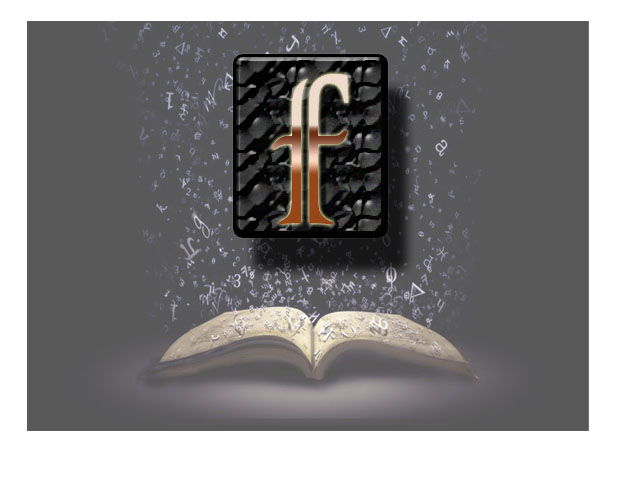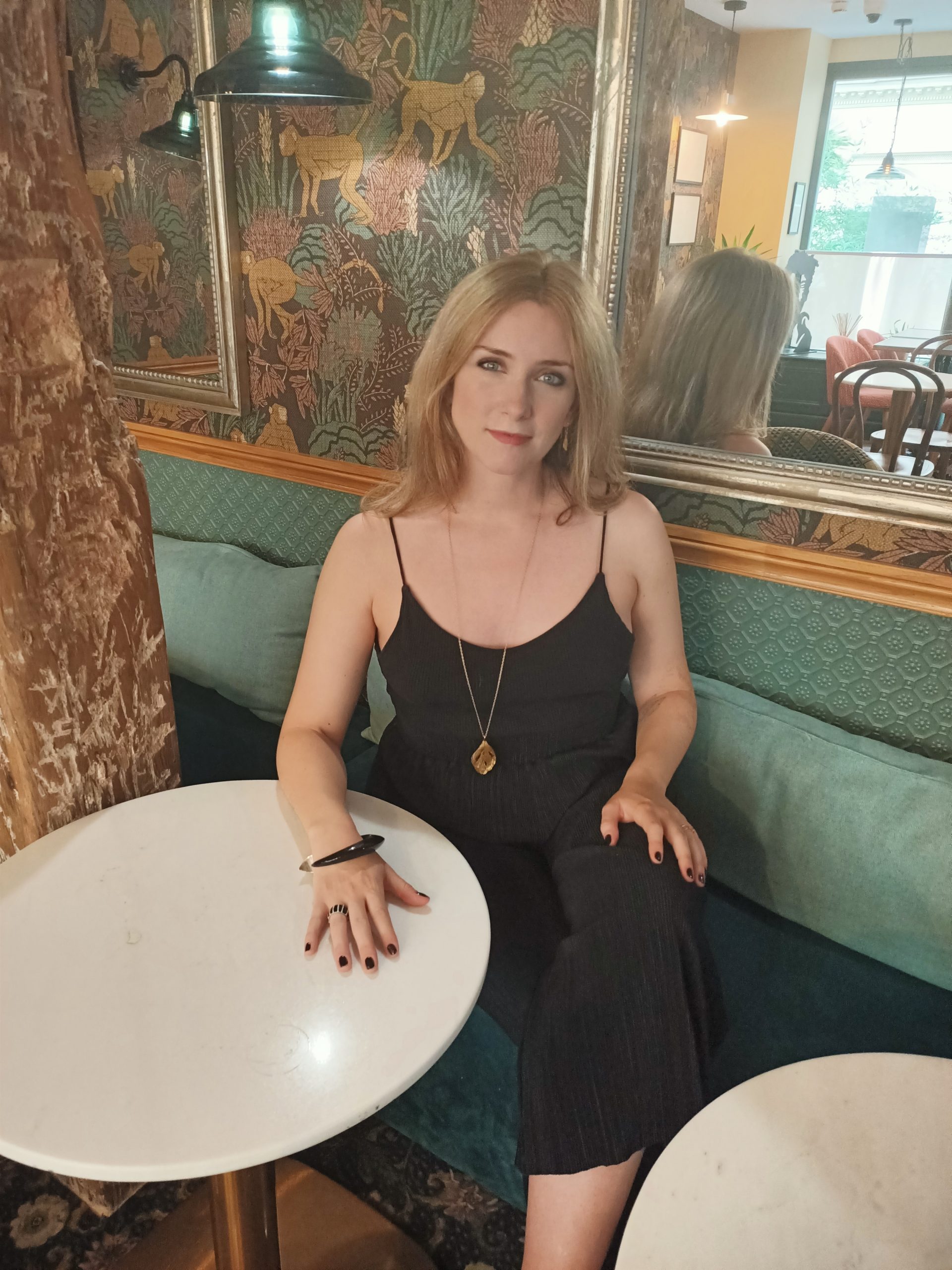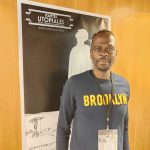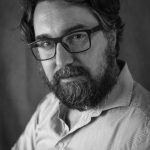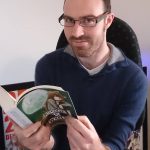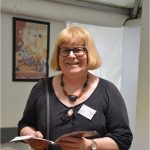Follow me to ground is now available in France and it’s a great opportunity for french readers to discover Sue Rainsford’s novel. Published by Aux Forges de Vulcain, Jusque dans la terre (french title) will propose you an horror novel, following Ada in its world.
Thanks to David Meulemans (and of course Sue), I have the chance to ask some question around Follow me to ground during the time she was in France, on june.
Thank you Sue having accept this interview with me. My first question is about the translation of Follow me to ground into french: is this translation, the first translation you have?
Yes, it is.
And what it means for you to starting as irish writer and became international writer?
IIt means an awful lot. It feels like a real transition. The book has already been published in a staggered way: it came out in Ireland, then it came out in the UK, and then it came out in America. But obviously all those versions were in English, so this feels like a new level of access to a whole different readership. It’s sort of mind boggling to think of the people who might read it now or to think of the audience that might come now, because I felt very lucky to have even a small, English-speaking audience. So now to have a whole ‘nother realm of people, alongside the fact of being translated and all of the nuance and texture that that throws up, the opportunity to think about your work from the perspective of another language and all of the difficulties and all of the sort of inadvertent poeticisms that come with being translated… Yes, I’m thrilled. It’s wonderful.
It was for you, with David, from “Aux Forges de Vulcain” to work together, including with the translator.
It’s been dreamlike. It’s been so pleasant. The “Aux Forges de Vulcain” is just such a wonderful and respected publishing house. I feel very lucky to be amongst the ranks of other authors they’ve translated, like Ursula K. Le Guin. But the translating process for me was quite straightforward. There was just one word that needed some discussion: the French word for ‘cure’, which is how Ada refers to the characters she and her father tend to. Francis and I discussed what French word might fit, that might encompass the meaning of those people. But yes, other than that, I’m just looking forward to reading it in French and hoping that my own French comes back as I’m going through it.
Follow me to ground is t finally two non-humans at the beginning. And we know at the beginning that it’s not human people. What or Who are they?
For me, the inhuman aspect started off with Ada and then her father figure sort of came later. But with Ada, I knew that she wouldn’t be quite human because I wanted her to function as something of a symbol and something of a metaphor as well. I was reading a lot of Simone de Beauvoir and Julia Kristeva, and I was really drawn to the sort of poetic language they used around female experience. And I wanted to think about an alternative female archetype or a female model that I could test that language out on. My central question was, if this very dense, poetic language was actually manifesting in the world, what would it look like and what would it feel like? And I didn’t think that it would feel particularly human: the language that gets put on female bodies and the behaviors that we expect of female bodies aren’t actually that human. So, Ada’s sort of monstrous or otherworldly element kind of came from there.
See, I like to think of her and father as creaturely. That’s the word I use for them. For me it gets across that they’re very embedded in nature and very much of the soil of the ground.
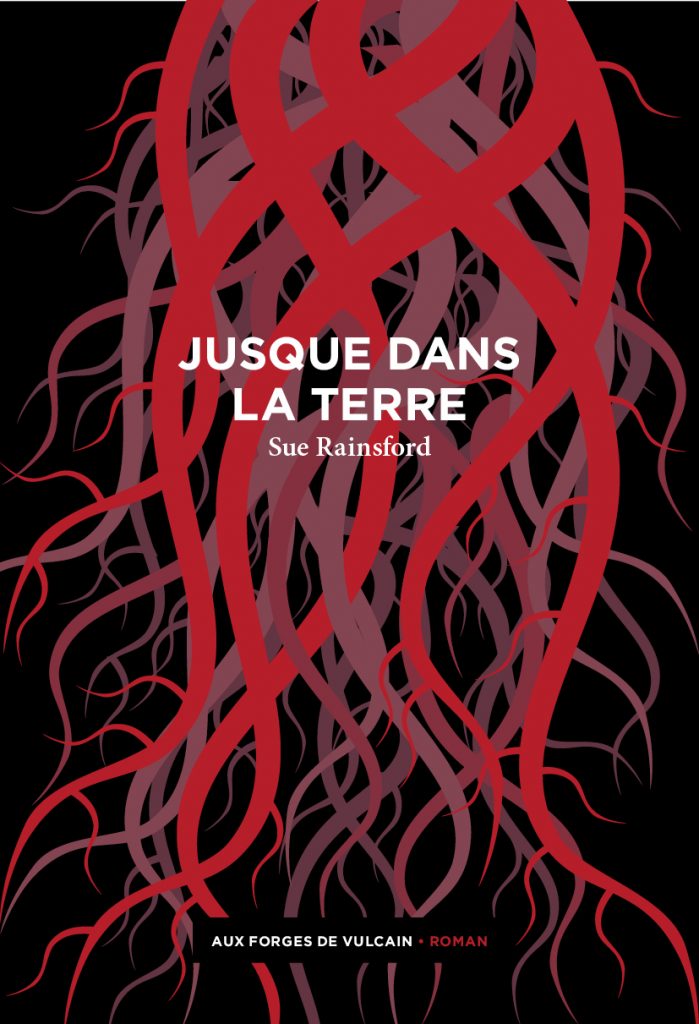
What surprised me is that we have no idea where it’s coming, but we see that Ada was created by her father… I wonder if there is a reference to Mary Shelley?
Oh, yeah, I think not consciously, but certainly looking back, I think that it was a subconscious influence, for sure. Similarly, I love early Cronenberg films and early horror films in general, from a time before special effects got very swish and seamless, when you see that tangible, mechanical approach to body horror, and how monsters are put together. And I love that about Frankenstein as well: that slow accumulation and that kind of tweaking as you go. I think this is maybe why I was drawn to the idea of there being different test versions of Ada that she only becomes aware of later in the book.
What I see too, is that when she meets Samson, she wants to have a relationship, kind of “normal” relationship, and she transforms herself to get that. Is it a way to find the self-actualization?
Yes, absolutely. I’m so delighted that you picked up on that. That was something very important to me. I very much love the idea of female bodies being able to self-actualize and express themselves and their desires on their own terms, and this was a core factor in writing a version of Femininity that was sort of removed from certain ideologies, prejudice or institutions. For me this is captured when Ada decides that she wants to have sexual, carnal experiences and she makes the body part for herself: she shapes her body in order to experience those things all the better. So, yeah, that’s very much it.
For me, there is a two aspect. So we have Samson and something is going wrong with him. We are not really aware on what he has… We are thinking that monsters are Ada and it’s Father. And we wonder all along your book if it was not finally Samson or Olivia that are monsters. It’s very strange. We have discussion about human limits between human and not humans.
I really wanted, like you say, the center action or the central narrative to be Ada and her father. But I wanted that narrative of Samson and Olivia to sort of creep up on the reader a little bit. So, what seems at first like a kind of straightforward relationship, a sexual relationship between Ada and Samson is not: Ada can only be with Samson or Samson can only be with Ada because of each of their backgrounds and kind of each of their personal traumas. So, Samson has had this traumatic relationship with his sister that’s very problematic and gets increasingly sinister as the novel progresses. He’s sort of not equipped to be with a human woman who would be asking all of the typical questions or making all of the typical demands of a man his age in a relationship. He needs somebody like Ada who has a different set of expectations.
Can we say that there is a kind of Romeo and Juliette too, because we have two families?
I love the idea of small towns and small communities and the drama that comes out of small communities of left to their own devices, especially somewhere that’s kind of out of the way and doesn’t get a lot of footfalls, so they’re never sort of held to account by people coming through and questioning their practices. I really liked that idea of kind of a feud coming slowly to the surface.
You’re talking about a small community and in fact, in your novel, if we summarize we have four main characters plus one more at the end but as we don’t want to spoil, we will not talk about. Many characters are talking about their feelings but it’s quite close
Yes, the Cure characters’ perspectives were a relatively late addition to the book. The book used to have a lot more sections of just Ada’s reflections on the present day and her daily life as she’s waiting on this event at the end of the book, When I put The Cures in, I couldn’t understand why I hadn’t put them in sooner: they sort of inflect Ada’s narrative quite nicely and sort of make her narrative all the stranger because they’re quite grounded and normal… They are very human with very human concerns about their bodies and their families and their working life. But, at the end, they were really enjoyable to write. Having slaved away over Ada’s voice, they came very easily.
You are talking earling about present day for Ada. It was something that surprised me, too, is we have no information about the “when”… We read that there are some cars, so Okay, it’s not so old about when…
Yeah, I suppose in my second book it’s the same. In my third book, I’m a little bit more specific about timeframe But I’m more interested in things like atmosphere and ambience as opposed to setting or place. So, I never really go into a book thinking where is it and when is it. I’ll start with an image and try to build a world that feels right around it… With Follow Me to Ground, the image was of Ada and her father digging a grade for somebody who isn’t dead yet. That image kept coming back to me, and the rest of the book came out of that. The only reason there are cars in the book is because I thought, Ada and her father have to be isolated, but people also have to get to them quite easily. So, yeah, I’ll bring in cars. They were all kind of like practical additions rather than grafting a time and a place. I generally don’t find that time and place are that pertinent or that necessary to the themes that I’m interested in, but again, in the book I’m working on at the minute, they’re more clearly defined.
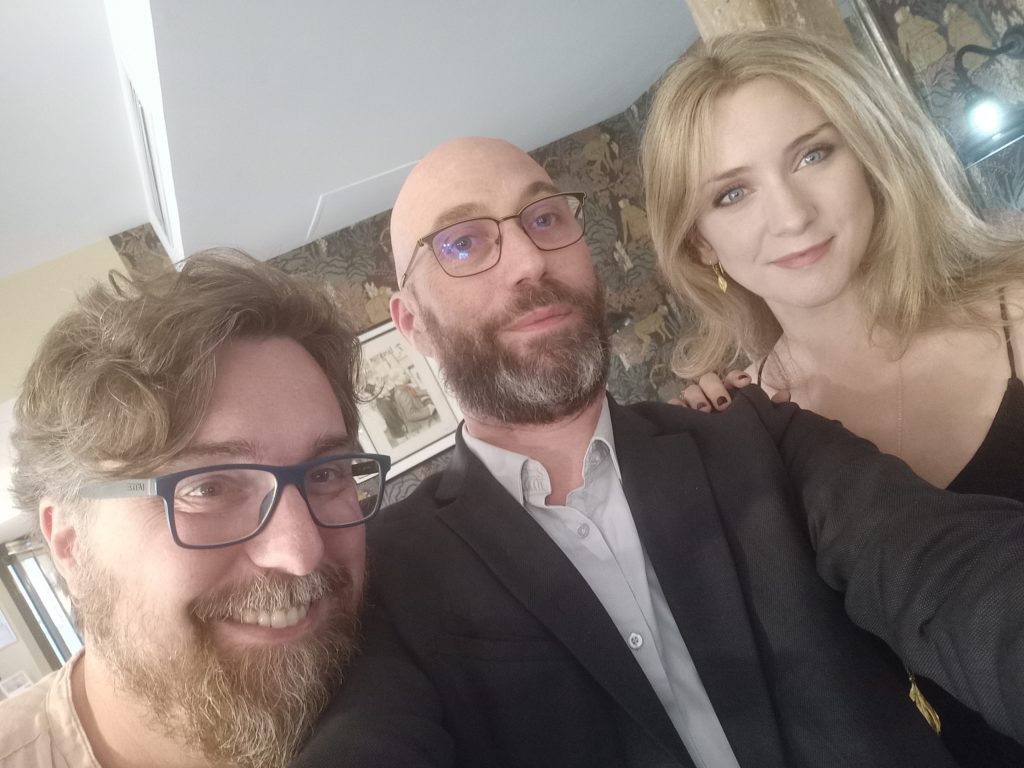
Make me thinking about the Maine and Stephen King’s kind of small community with secrets and so I don’t know if it’s one of your references?
Yes. I think, again, Stephen King probably more from a film adaptation perspective than the actual books themselves. But in terms of the landscape and the atmosphere of the landscape, I was reading a lot of Faulkner in 2013 when I first started writing the book. I was reading his book Wild Palms, and he has all of these intense descriptions of, hot, sultry weather. There was also a heatwave in Ireland at the time that I was working on working on the first draft in 2013, over the summer. So, yes, Faulkner was probably my main literary reference for the landscape. And that idea of venturing out into his fictitious town, this kind of swamp land where anything could be happening, and the heat and the isolation starts to kind of weigh on people psychologically and have a really strange effect on them the longer that they’re out lingering in the heat.
And one of the points that I have not understood, is about the eel….
That’s very biographical. We have spent a lot of time, my partner and I and my family, in a town called Schull, which is in West Cork, the southernmost point of Ireland. It’s a place with a very dramatic landscape, and over the years we’ve spent a lot of time in a house near a big black lake that always looked totally impenetrable. My sister and I were told when we were little, don’t go near don’t swim in that lake, because there’s a huge eel in it…so that’s where that came from.
What I see, too, is that Ada and her father have a lot of power, in fact strongly linked to nature, too. So, is it a way to say that Nature can help us?
I was more thinking about how women and female bodies are often paired, are often seen as an extension of nature. This is something that happened following the civil war in Ireland 100 years ago, when the republic was reclaimed from the British: there was this kind of post-colonial drive to reclaim Irish land and also to reclaim Irish female bodies, and it resulted in this conflation of Irish women with the land as being fertile and pure and a way to sustain the nation. And that always just struck me as very problematic and very bizarre. So, I kind of wanted to subvert and play around with that cliche or stereotype that women are earthy and have a very particular that their bodies have a very particular relationship with nature.
In your book, we see Ada and her father working with viscera. It’s awful, no one like to imagine another working with their viscera. And in the same time, your description is so poetic. Is your book an horror book?
I’m so interested in what gets interpreted as horrific and what gets interpreted as poetic as well. But I’m not really interested in producing a horrific effect. I It’s always sort of a byproduct or an accident, something that comes up out of the work quite gradually over time. So, say, with Ada, I knew that I wanted her to have a very particular relationship to human bodies. And I knew that I wanted her to have a clinical gaze, if you know what I mean, but not like a clinical medical gaze. So, I was thinking, what could she do that would let me try out those different theories or ideas? And it was singing into people’s bodies and opening them up in this very intuitive way. And then, maybe it just takes a lot to disturb or unhinge me, because that part of the book I didn’t really see as being graphic or explicit in any way. People have bodies, things go wrong with them, we look inside them. That’s always struck me as very practical.
We have non-human people, they are able to help humans dealing with diseases and so on. But why? Because there’s no reason, isn’t it?.
That’s exactly it. They have no reason: they don’t seem driven by altruism or compassion; it’s just ingrained in them. For a while, I had more of a backstory for Father that suggests why he’s so focused on performing this role. But I took it out in the end because I wanted it to be, as you say, kind of blind impulse, because, again, I am just very interested in ideologies and these habits and practices that people will pursue because they have been born into them: often it takes people a really long time to question whether or not they should be behaving in a particular way. So, for Ada, she does not question it until she meets Samson and she realizes that there is this other aspect to her own body and to life in general. Whereas her father has never experienced that sort of friction. He was been born into this role and he will protect it at whatever cost, even though he doesn’t really understand why he’s protecting it.
He just knows no other way. And that, to me, was scarier than including a reason.
In fact, she has to make a choice between her nurture and what she wants to be.
Yes. Again, nature versus nurture is something that I’m incredibly interested in too. So that was sort of where the plot point started taking shape for me.
We see, too, a particular aspect of human beings: we have people that want to be saved with something they are afraid of.
I remember reading Michel Foucault, his describing how the model of the confessional with the priest morphed into therapy culture, how in society we’re always being pushed to find somebody to whom we can divulge our secrets to. It’s always made a lot of sense to me that we might become obsessed with our medical practitioners, that a part of us believes that if a doctor can fix one of your organs, then maybe everything is fixed. If you get your appendix removed, maybe your childhood trauma can also be remedied in that really kind of practical, surgical way. So, yeah, I was trying to play with that a little bit. And some of the characters are simply very drawn to Ada, for whom the positive experience of being cured is disproportionate to how much the actual ailment or illness is affecting them.
And when you put some people under the ground.
As I was writing the book it started to feel inevitable that some people would get increasingly addicted to that feeling of blacking out and not having any thoughts or concerns, or just being obliterated and temporarily at a remove from their daily life. It’s something that we find ways to do that all the time, through substances and all forms of escapism.
And I see that you were rewarded for Follow me to ground with Kate O’Brien Award, celebrating Irish Women’s Writing. What does it mean for you?
It’s awarded by the Limerick Literary Festival for a debut novel by an Irish female author. And I was actually just at the festival, talking to this year’s winner, Una Mannion on Sunday before we came here on Monday morning. Kate O’Brien was an author whose themes were quite innovative for Irish culture at the time. She was a lesbian and a feminist writing fiction about in the 1940s, and she was censored rather than given the attention that she was deserving of. It meant a lot to me to win that award so early in my career.
You said earlier that you are loving horror films especially Cronenberg, so why you have a particular pleasure to see this kind of movie?
I’m very excited for his new one, Crimes of the Future, I can’t wait to see it. But I have always had a very particular relationship with horror film. I loved American Werewolf in London, where you have that scene which was mind boggling when it first came out, that stop motion approach to body horror, when the main character is transforming into a wolf. It’s this slow, slow, painful transformation. The whole sequence takes over two minutes. I love everything about it. I love Credence Clearwater’s Bad Moon Rising playing while it’s happening. I love the actor, David Naughton’s, shock and horror, his distress while he’s watching his body being transfigured in this way. More deeply, I think horror film has a lot to tell us about how we look at bodies and which bodies we deem as other and which bodies we deem as horrific and why. Barbara Creed wrote this book, The Monstrous Feminine, about psychoanalytic theory and feminist theory in relation to horror, and how the female body is often treated as a site of horror, even when it’s only performing its most basic bodily functions.
So, I love uncanniness and I love feeling unhinged. I find it to be a very productive place for me intellectually. A lot of work comes out of it for me. I just saw the new film by Alex Garland, Men, And I just love the body horror and all of the shape shifting, the aesthetic of it: it is very galvanizing for me when it comes to writing.
And in fact, when we read novel, we see some it’s very visual. Does it mean that you have somewhere in your mind, it could be adapted?
Growing up, my sister and I watched a lot of film (my sister works in casting now) and I think this trained my brain to think in pictures from an early age.
My primary degree is in art history, so I’m very used to spending time with images, whether they’re in an artwork or a film in a piece of text.
In terms of adaptation, I would love if someone made it into a film. There’s been little tugs on the line over the years. But I think I would love for someone to make it and retain its grounded quality, like not make it too fantastical, if you know what I mean. When I watched Sharp Objects a few years ago, I really felt Eliza Scanlan, would be a brilliant Ada.
You can address a lot of people with your story and hopefully a lot of people often as it was in the same time “Horror” based and poetic.
I’ve always been very happy when people read it and they say they experienced it as horror. The same goes for when people read it and say it’s magic realist, when people read it as a straight piece of literary fiction. I think it is what it is. There are all these different influences in it. But I do hope that reading it, you get a sense of how much I love language and how invested I am in prose. All of these things hold weight, and I hope feel inviting to lots of different readers.
What is interesting, too, is that we can have several readings. We can discuss about feminism and the place of the woman. We can discuss about the limits between human and non human. We can discuss about the fact to reject differences… and I don’t know if it was voluntary, but certainly.
I don’t know if I’ll ever again write a book again with so many questions in my mind right at the start: a female figure who takes on all of this metaphorical weight and all of this imagery about what it means to be a woman and how women are expected to behave.
All those questions were very much on my mind, as well as questions about the process of othering and making bodies strange. Questions of acceptance, and also how much expectation we have built into every single encounter with one another because of what we have been taught about other bodies, culturally and ideologically. How might we pare back all of that and meet each other afresh and new: this remains one of my central questions. And then all of those other things you just put together so eloquently kind of trickled out of that.
I have noticed a second novel Redder days already published in Ireland, what is it about?
So that novel is about twins called Anna and Adam and they are living in the aftermath of a failed commune. So, a group of people who were living together, waiting for the end of the world and who had built a belief system around this imminent event. But the longer they wait, the longer it takes. The end of the world is not coming in the way they expected. So, Anna and Adam are living with the commune’s former leader, a man called Koan. Their mother left years ago while the commune was still functioning and while they are still reckoning with this act of maternal abandonment, they are taking care of this sort of failing leader and the landscape around them is behaving in a really strange way. And so, they have their relationship with each other, their relationship with the landscape, and then their relationship with their own bodies, which is sort of being colored and transfigured by the fact of this strange environment.
I’m not sure this is a question for you or for David, but is there ongoing discussion about french translation?
We have talked about it a little bit, which would obviously make me very happy. Nothing in paper, nothing in print just yet, but, yes, fingers crossed. All will go to plan.
And you said that you have another novel on writing…
Which no one has read, which no one has seen, which is a blessing and a curse, but yes, it is a book. I can’t say too much about it because it is still quite new. I’m hoping it’ll be finished by the end of the year. But again, it’s a book that has a strange geographical location at the heart of it and that’s kind of making people behave in a strange way. But it’s very much set in this world and in this time. So that’s been very different for me because you have to include certain technological aspects. It took me a minute. I thought, I’ll just try it and see. Maybe I can’t write a book like that, but I’ll try it, I’ve been working on that for about a year and a half and like I say, no one’s seen it. It’s not that it’s top secret, but I j wanted to take some time, just spend time with it by myself and try and fix as many things as possible before I pass on that burden to an editor.
Nothing to see with other question: Was it your first time in Paris?
No, I’ve been to Paris a couple of times, very luckily. I’ve visited with my family, my parents and my sister when I was younger, and then my partner and I were here, I think it’s about five years ago on our way to a wedding. And then just with Covid, obviously, we haven’t really been to too many places, but we’re making up for a long time now. I love Paris.
I have a last question, that is the one I asked to everyone at the end of interview: last words are yours
Transwomen are women.
